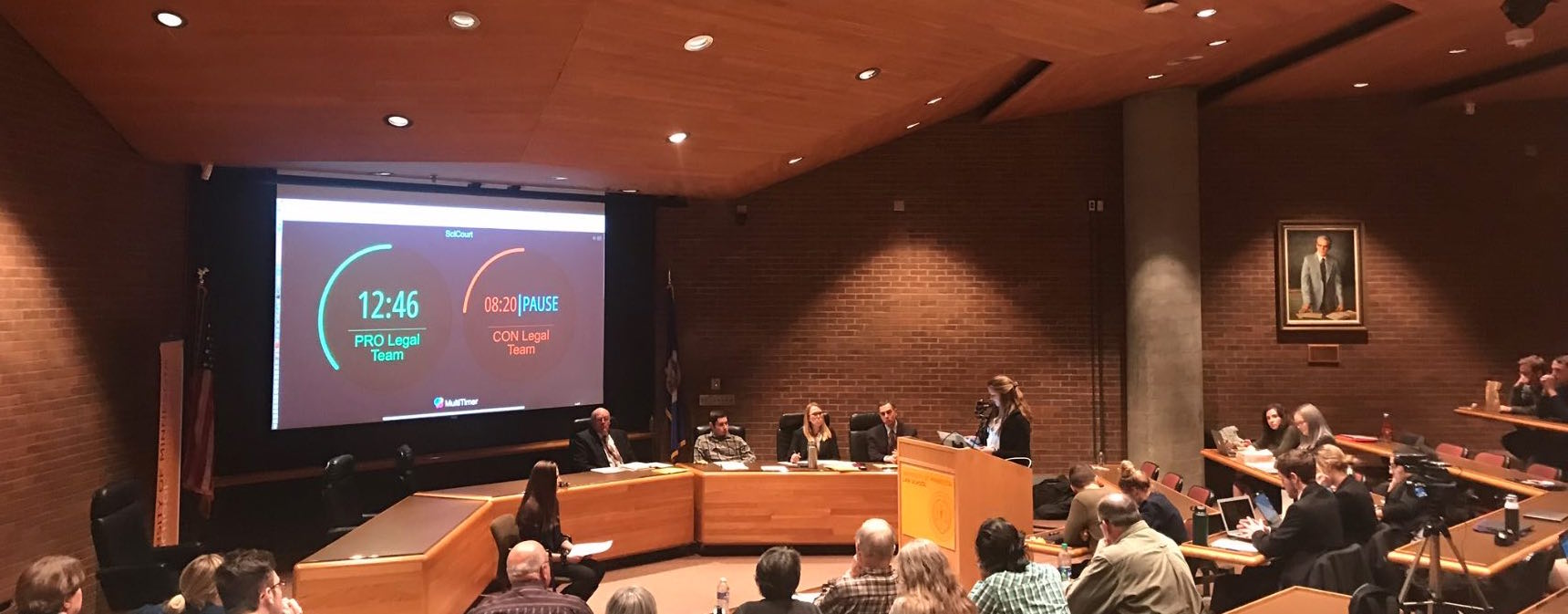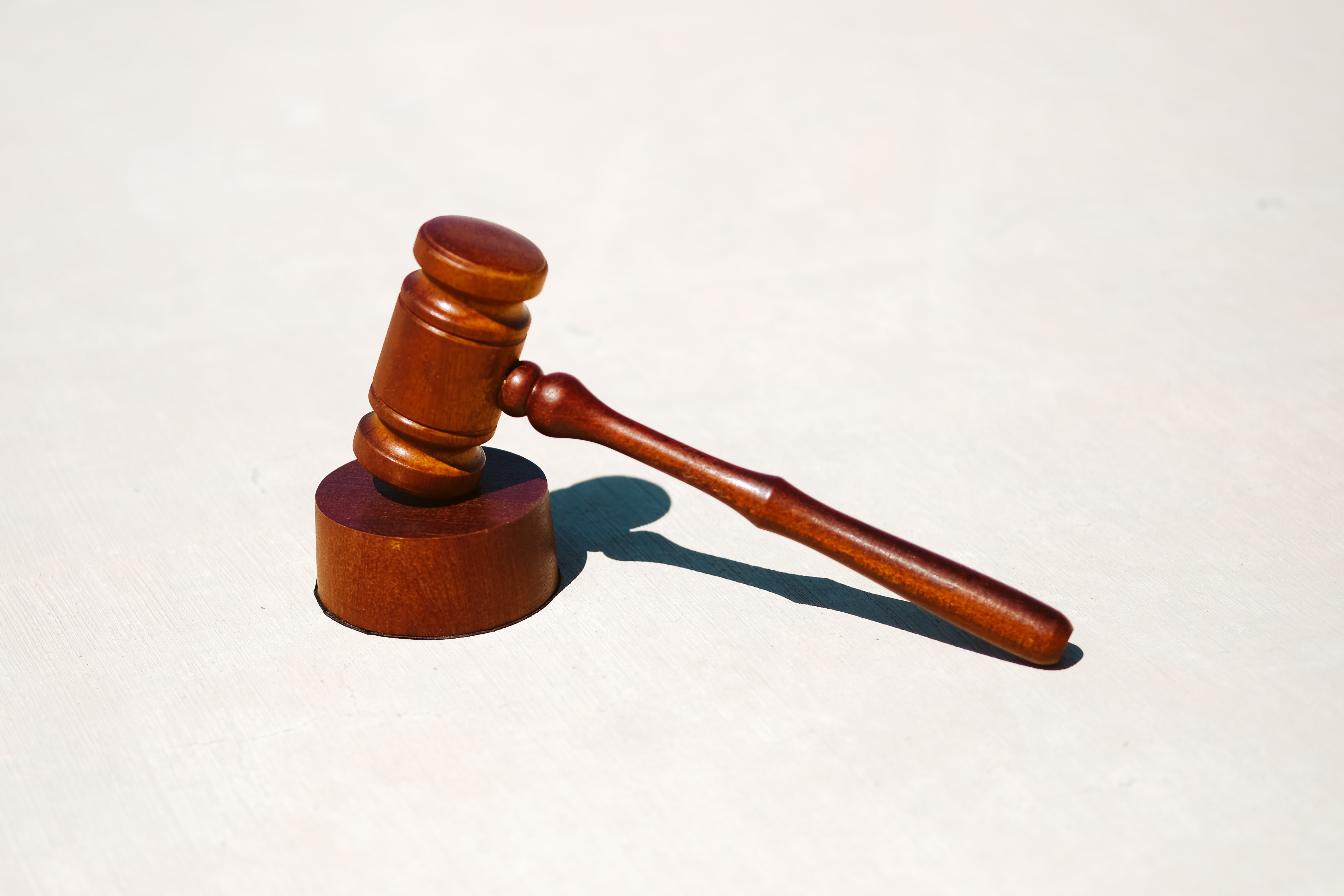
Welcome to Science Court!
Science Court is a project designed to combat polarization in American society and strengthen democracy. It is run as an interdisciplinary course in the University of Minnesota Honors Program involving students from across the university. The students select a controversial issue and spend an entire semester studying it in depth to determine the facts (based on sound scientific research) and then argue it in a mock trial in front of a jury of citizens with a mix of views and backgrounds. The public is engaged through compelling audio, video and online content generated by the students about the preparations, trial and verdict. The trial is free and open to the public.



The 2022 Science Court case is
Grading practices at the University of Minnesota can lead to bias, stress, and disincentivize learning, new innovative student assessment methods should be adopted
This year's Science Court is in partnership with the University of Minnesota (UMN) Student Senate. This topic is inspired by a Student Senate resolution, approved on December 3, 2020, requesting an extension of the UMN policy allowing students to opt for S/N grading (Satisfactory/Not satisfactory) in any course due to the COVID-19 pandemic. The Science Court case generalizes this to a full reevaluation of how students are assessed at UMN. This is timely considering increasing concerns regarding student mental health, the increased emphasis on student diversity and equity, changes in how students learn due to the technological environment, the increase in scholastic dishonesty facilitated by the internet and social media, and the rise of remote learning.
Science Court will consider student assessment holistically exploring what is known from scientific research in domains of knowledge informing this topic and propose two main strategies, Refine versus Reform, for the Student Senate to consider.
- The "Reform" (pro) approach proposes to replace the current UMN system with alternative methods for grading and student assessment proposed in the literature and tested at other institutions.
- The “Refine” (con) approach will argue to largely retain the current UMN grading system with modifications aimed at addressing its limitations based on research findings.
Stay tuned or follow us on twitter or join the Science Court mailing list to be kept informed.
LATEST BLOG POSTS
Depolarizing America: Episode 3
The University of Minnesota Science Court students are researching and debating whether mandatory service programs could work to create more political and racial harmony in the United States.
In this third episode of Depolarizing America, hosted by Matt Simonson, SciCourt examines educational opportunities and marketing volunteer service programs. Jessica Jurcek and Simonson interview members of the science and legal team. Jennie Lim discusses the importance of motivation and skill development for successful volunteer programs. Madeleine Stankiewicz talks about how the legal con team plans to market the volunteer service program and prepare for trial.
Follow us on social media -- Instagram, Twitter, and Facebook at @scicourt -- and if you are interested in serving on our jury to decide this case, apply at z.umn.edu/scicourt-jury by April 5, 2021. You can also follow along by subscribing to the Science Court Podcast on Apple Podcast and Spotify
SciCourt begins planning for trial

Photo by Tingey Injury Law Firm on Unsplash
Assistant U.S. Attorney Tim Rank visited Science Court this week, providing tips on best practices for the legal team to prepare for trial. He stressed the importance of emotional appeal and teaching moments in opening statements. “You are telling a story,” Rank said. According to Rank, members of the legal team should prepare for their opening statements by acknowledging both their arguments and the other side’s counter-arguments, clearly explaining key topics, and telling the jury what to watch for during the trial.
Depolarizing America: Episode 2
The University of Minnesota Science Court students are researching and debating whether mandatory service programs could work to create more political and racial harmony in the United States.
In this second episode of Depolarizing America, hosted by Matt Simonson, SciCourt examines the public health and psychology of volunteer and mandatory service programs. Matt Simonson and Hannah Ihekoronye interview members of the science team. Philip Dowdell discusses the impact of mandatory service programs on public health. Manix White talks about the role psychology plays in the effectiveness of service programs.